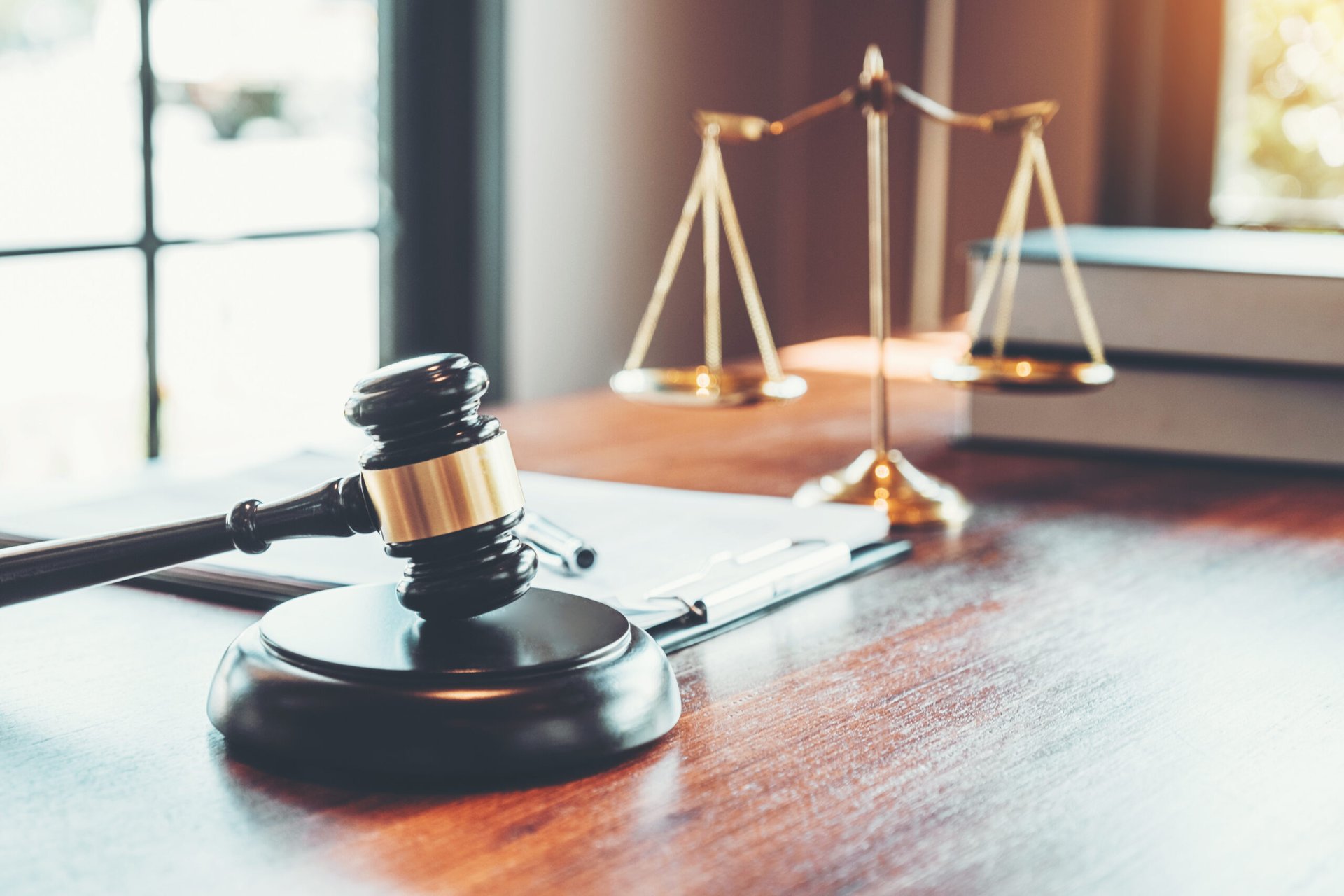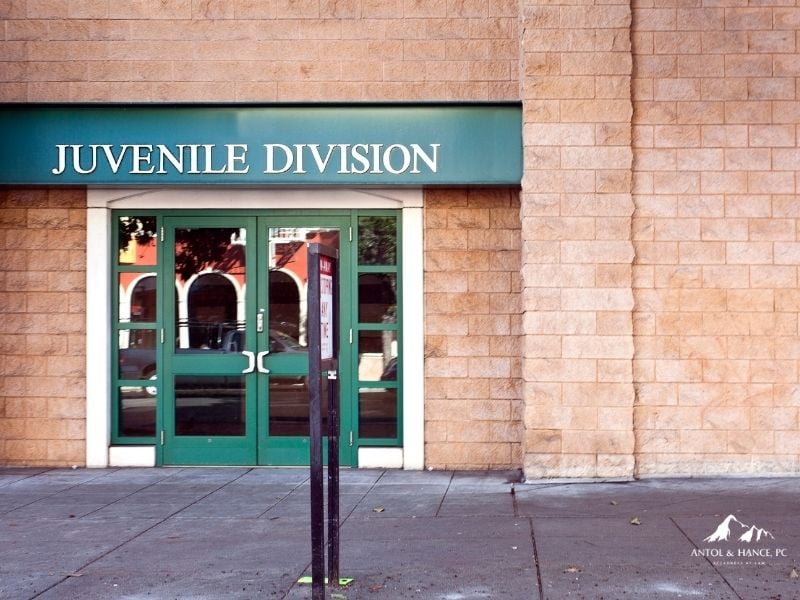Plea Bargaining in Criminal Proceedings in Flagstaff, Arizona
Reducing Charges or Penalties with Plea Bargains
Are You Or Someone You Love Facing Criminal Charges?
Navigating the criminal justice system is immensely difficult, and the stakes are high when you are facing criminal charges. If you are convicted, you could be facing significant fines, jail time, and a lasting criminal record. The attorney group of Antol & Hance PC understands the fear and confusion that comes with being charged with criminal charges or penalties. We have over 60 years of combined experience in defending our Northern Arizona clients. We are dedicated to fighting for our client’s rights and ensuring that they receive a fair trial. We will work tirelessly to ensure that you receive the best possible outcome.
Trust In Over
60 Years
of Combined Experience
When it comes to navigating the complex world of criminal law, one potential option is a plea bargain. A plea bargain is a negotiation between the prosecution and the defense, where the defendant agrees to plead guilty in exchange for reduced charges or penalties. This legal tool is essential for both sides, as it can lead to quicker case resolutions and lighter court caseloads. In this comprehensive guide, you’ll understand plea bargains and what to expect during the process of negotiating a plea bargain.
Understanding Plea Bargains
Before diving into the intricacies of plea bargains, let’s talk about what plea bargains entail. A plea bargain is a compromise where the defendant agrees to plead guilty to one or more charges, often in exchange for reduced charges, lighter sentences, or other concessions. There are different types of plea bargains, including charge bargaining (reducing the severity of the charges), sentence bargaining (reducing the punishment), and fact bargaining (agreeing on certain facts of the case).

Plea bargains are a fundamental aspect of the legal system, as they facilitate the efficient handling of cases and provide predictability in sentencing.
Benefits of Pursuing Plea Bargains
Reduced Charges and Penalties: The primary advantage of a plea bargain is the potential for reduced charges or penalties. For defendants, this can mean avoiding more severe consequences, such as lengthy prison sentences.
Quicker Resolution of Cases: Courts have limited resources, and cases can backlog quickly. Plea bargains help expedite the legal process, allowing cases to be resolved faster, which benefits both defendants and the justice system.
Predictability in Sentencing: By entering into a plea bargain, defendants have a clearer understanding of the likely outcome, avoiding the uncertainty and risk of going to trial.
Lighter Caseloads for Courts: Courts are often burdened with numerous cases. Plea bargains help alleviate this burden, allowing judges and prosecutors to focus on more complex or contentious matters.
Preparing for a Plea Bargain
Effective preparation is essential before entering into plea bargain negotiations. Your attorney will walk you through this process:
Conduct a Thorough Case Assessment: Your attorney will review all aspects of your case, including evidence, witness statements, and legal precedents. This assessment helps identify strengths and weaknesses in your defense.
Identify Potential Areas for Negotiation: Determine which charges or penalties you want to negotiate. Is there room for reducing specific charges or seeking a lighter sentence?
Gather Evidence and Witnesses: Your attorney will help collect compelling evidence and witness statements that support your case, bolstering your bargaining position.
Consult with Legal Counsel: Trust the expertise of your attorney, who will provide critical legal advice, assess the merits of your case, and skillfully negotiate on your behalf.
Negotiating the Plea Bargain
In order to reduce charges, effective negotiation is pivotal to securing a favorable plea bargain. The process of negotiating a plea bargain looks like this:
Communicate with the Prosecution: Your attorney will communicate with the prosecution, understanding their objectives and perspective.
Making Initial Offers: The negotiation begins with your attorney making an initial offer. This could involve proposing a specific charge reduction or sentence reduction that they believe is fair and just.
Counteroffers and Concessions: Be prepared for counteroffers from the prosecution. Your attorney may be flexible and willing to make concessions if it leads to a more favorable outcome for your case.
Finding Common Ground: Successful negotiations center around finding common ground. Your attorney will focus on areas where both sides can agree, working towards a mutually acceptable outcome.
Factors Affecting Plea Bargain Negotiations
Several factors may influence the outcome of your plea bargain negotiations. It is important to understand may potential factors can affect your preferred outcome, like:
- Strength of the Evidence: The strength of the prosecution’s case can impact their willingness to offer a favorable plea deal.
- Severity of the Charges: Extremely serious charges may limit negotiation flexibility.
- Your Criminal History: Your prior criminal record can affect the prosecution’s willingness to offer leniency in reducing your charges.
- Victim’s Preferences: Your attorney may consider the victim’s input and preferences during negotiations.
- Prosecution’s Willingness to Negotiate: The prosecution’s attitude can significantly impact the outcome of negotiations.
- Judge’s Approval: The final plea agreement must be approved by the judge, who may exercise discretion in accepting or rejecting it.
Strategies for Reducing Charges or Penalties
Your attorney will employ various strategies to achieve your goals:
- Charge Reduction: Seek to reduce the severity of charges, possibly by downgrading from a felony to a misdemeanor or agreeing to lesser included offenses.
- Sentence Reduction: Negotiate for a more lenient sentence, potentially through agreed-upon sentencing recommendations or alternative options like probation or diversion programs.
- Combining Charge and Sentence Reductions: In some cases, it may be possible to negotiate both reduced charges and a lighter sentence.
Presenting the Plea Bargain to the Court
When presenting the plea bargain to the court, your attorney will follow these steps:
Submit to the Judge: They will submit the plea agreement to the judge for their review.
Explain the Terms and Reasons: Clearly explain the terms of the agreement and the reasons for reaching it. Address any concerns or objections from the judge or opposing counsel.
Potential Outcomes of a Plea Bargain
The outcome of the plea bargain can vary:
- Acceptance: If the court accepts the plea bargain, you will proceed with the agreed-upon charges and penalties.
- Rejection: In some cases, the court may reject the plea bargain if they believe it’s not in the best interest of justice.
- Revising and Resubmitting: If the plea bargain is rejected, your attorney may revise and resubmit it with modifications to address the court’s concerns.
- Proceeding to Trial: If no agreement is reached, your case will proceed to trial, where both sides will present their arguments and evidence.
The Consultation Process
Plea bargains are a vital tool within the legal system, allowing for reduced charges or penalties, faster case resolutions, and a more manageable caseload for courts. As you face these challenging negotiations, rely on the expertise of your attorney to prepare, negotiate, and present the plea bargain to the court. While there are no guarantees in legal negotiations, a well-executed plea bargain can lead to reduced charges and gaining back your freedom. When you have skilled legal counsel by your side, you can approach this process with confidence. If you’re currently facing criminal charges, don’t hesitate to reach out to us for a free consultation
Latest Criminal Defense Articles
Can You Be Charged for Having Someone Else’s Drugs in Your Car or Home in Arizona?
In Arizona, you can be charged with possession of drugs found in your car or home, even if they belong…
Read More >What to Expect After Your DUI Arrest in Flagstaff, AZ
A DUI arrest can be confusing and overwhelming. The immediate aftermath may feel chaotic, but understanding the process is the…
Read More >FAQs About Prescription Drug Laws in Arizona
Facing charges related to prescription drugs can be frightening and confusing. Many people don’t realize that the laws governing controlled…
Read More >FAQs About Drug Paraphernalia Charges in Arizona
Arizona drug paraphernalia charges can be confusing and frightening. Many people don’t realize that a wide range of common items…
Read More >Arizona Juvenile Sentencing Guidelines: What You Need to Know
Facing a charge involving a minor is a deeply stressful experience for any family. It’s natural to feel overwhelmed and…
Read More >How Long Does an MIP or MIC Stay on Your Record in Arizona?
Facing a charge for a Minor in Possession (MIP) or Minor in Consumption (MIC) of alcohol can be a scary…
Read More >Learn Your Options with Free Initial Consultation
The law firm of Antol & Hance, PC is located in Flagstaff, Arizona. Our lawyers represent people throughout Northern Arizona in a variety of legal matters. If you have been charged with a drug possession charge or other crime, it can be critical to begin preparing your defense as soon as possible. Contact our attorneys online or call (928) 214-6339 for a free initial criminal case review right away.
Experienced Trial Attorneys in
FLAGSTAFF
The law firm of Antol & Hance, PC is located in Flagstaff, Arizona. Our lawyers represent people throughout Northern Arizona in a variety of legal matters including:
• Criminal Defense, including DUI, Drug
Charges, Violent Crimes & Serious Felonies
• Family Law, including Child Custody,
Adoptions & Divorce
• DUIs – All types from first offense to
aggravated & felony DUI
Experienced Trial Attorneys in
Flagstaff
The law firm of Antol & Hance, PC is located in Flagstaff, Arizona. Our lawyers represent people throughout Northern Arizona in a variety of legal matters, including:






